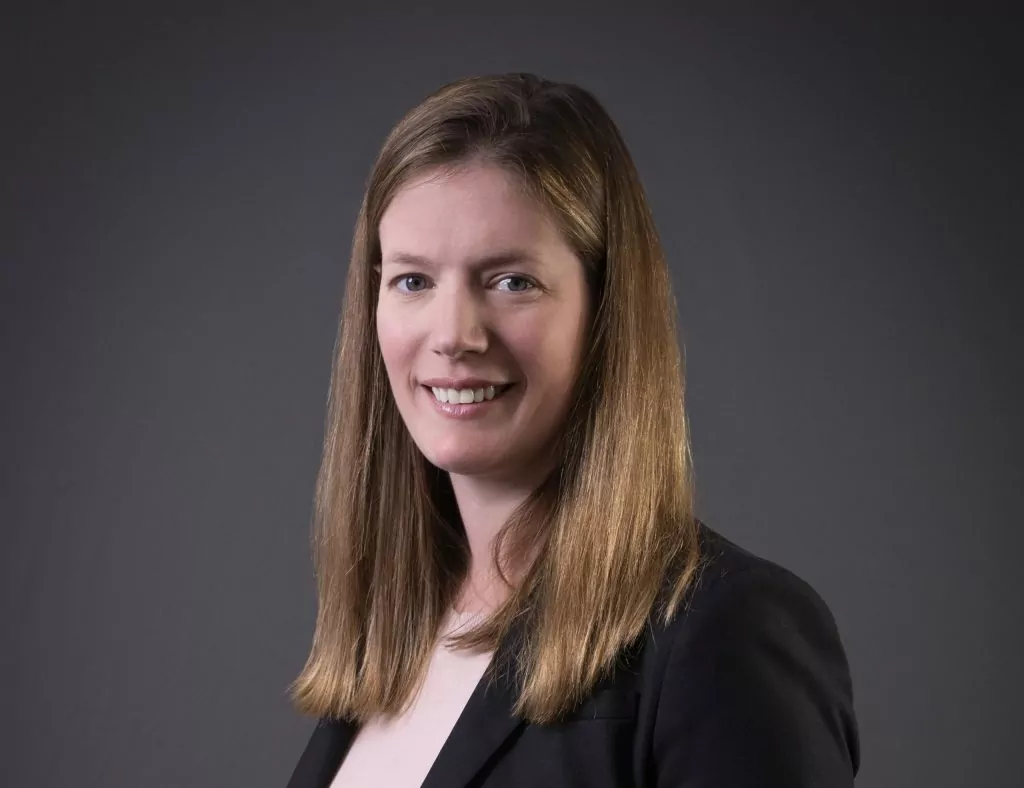“Green Queen” Britta von Oesen in Colgate Magazine

Originally published in the Winter 2021 edition of Colgate Magazine.
As a staunch environmentalist, Britta Von Oesen ’03 attended Cornell University business school to gain more experience in sustainability consulting. Halfway through an introductory finance course, however, her professor pulled her aside with a surprising proposal. He said, “You seem to have a natural knack for this; I think banking would really suit you,” she remembers. “I thought, ‘No way I’m going to become an evil, money-grubbing banker — I’m going to save the world!’”
She had to admit, however, that the complicated math of investment banking came easy to her — and it gradually dawned on her just how much environmental impact she could have in the field. Now managing director of the San Francisco branch of CohnReznick Capital, she has raised more than $4 billion to date for renewable energy projects around the country. “The more I learned about capital markets, the more it made sense to me that whoever controls the purse strings is going to be the one who really shapes policy,” she says. “Making investments that are good for the world can also make you money.”
In a field stereotyped as a testosterone-fueled boiler room, she’s been honored twice this past year: named one of the Most Influential Women in Bay Area Business by San Francisco Business Times magazine and given a Clean Energy Education & Empowerment award along with eight other women by the U.S. Department of Energy. “Getting more women into this space is so dear to my heart,” she says.
Von Oesen grew up in Lynchburg, Va., where she fell in love with the outdoors at a young age, joining the Sierra Club by sixth grade. She majored in environmental biology at Colgate and worked as an environmental consultant before business school. After Cornell, she joined Lehman Brothers for a few months in 2008 just before the financial crash. Rather than stay on Wall Street, she left for Germany and Italy to work on solar and wind projects. “Europe at the time was probably three to five years ahead of us,” she says. “We were raising hundreds of millions of euros for wind farms, which was unheard of in the U.S.”
Still, she could see the potential for projects here, joining CohnReznick in 2014 and quickly rising through the ranks. She now spends much of her time working out the complicated tax equity financing to pull off multi-million-dollar deals to build new renewable projects. “A lot of these projects wouldn’t get done without our help,” she says. Even with the COVID-19 pandemic, 2020 was a record year in the United States for renewables. Costs have come down to a point where solar and wind are competitive with coal, oil, and gas — and unlike fossil fuels, they provide much more consistent returns. “Presumably, the sun is going to come up every day,” Von Oesen says. “Otherwise, we’ve got bigger problems.”
While on the federal level, green energy is often seen as a Democratic priority, states with Republican administrations such as North Carolina, Georgia, and Alabama have actually led the way in pushing incentives for new projects. “These governors are fighting each other to bring renewables to their states,” she says. “It’s a huge driver of the economy — with new jobs vastly outstripping those in oil, gas, and coal.”
Von Oesen predicts renewable energy will be a significant part of the economic recovery from the pandemic, breeding jobs and kick-starting economic growth, and, at the same time, driving down carbon emissions that contribute to climate change. She hopes her example can inspire women to be a part of that drive. With Von Oesen’s Department of Energy award, CohnReznick is sponsoring an essay competition for college-age women, with winners invited to attend an annual conference on sustainable investment. “Banking has such a stigma around it, we’re looking to try and get to women early, and show them it’s not just about piling up returns,” she says. “You can also make such a big difference in the world.”

